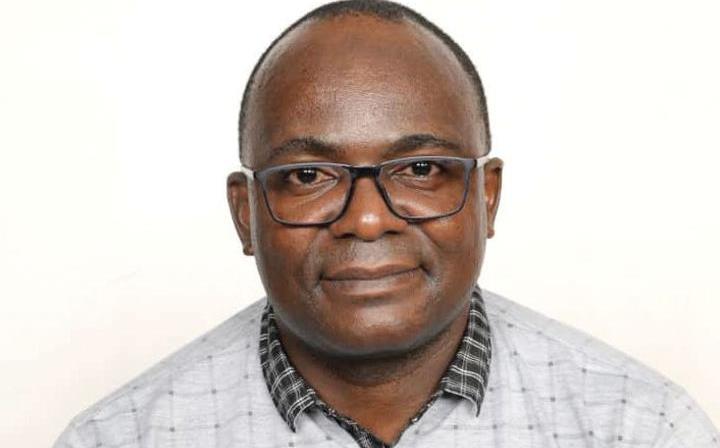‘Same sex couples were also created by God’
In the Weekend Nation of January 6 2024, columnists Gift Trapence and Michael Kaiyatsa defended the Roman Catholic Church leader Pope Francis who urged priests to be blessing same sex couples. EDWIN NYIRONGO asked Kaiyatsa, who is Centre for Human Rights and Rehabilitation (CHRR) executive director, to shed more light on the matter. Excerpts:

Q. Why do you agree with Pope Francis about blessing same sex couples?
A. Like everyone else, same sex couples deserve God’s mercy and love. They were created by God; therefore, it is wrong to assume that they are excluded from His mercy and love. It is sad that people often look at same sex couples as the worst sinners. But the truth is that we are all sinners in the eyes of God. There is no one righteous, not even one. The Pope’s message is an important reminder that no matter how flawed, we are all God’s children and no one should be barred from seeking God’s blessings.
Q. But the decision was condemned by Catholic Bishops in the country?
A. ‘Condemned’ may not be the right word. I think the bishops were more concerned about how the message would be interpreted in Malawi rather than the veracity of the message itself. The bishops resolved that such blessings would not be permitted in the country to avoid creating confusion and anxieties among the faithful. Such a decision is not surprising considering the sort of things some people were spreading on social media, including that the blessings were a tacit approval of same-sex marriages which is not true.
Q. Are you satisfied with the way the bishops delivered the Pope’s message to their faithful?
A. Given the circumstances, I believe the bishops did the best they could. At least they spoke with one voice, even though there were a few outliers here and there. However, banning priests from administering the blessings was extreme, in my view, and a little disrespectful to the Pope who is the head of the Catholic Church. It is, however, important that the bishops acknowledged in their letter that what the Pope had said was not contrary to the core teaching of the Catholic Church.
The Catholic Church has always taught that homosexual acts are “intrinsically disordered”, but that homosexuals shouldbe treated with respect, compassion and sensitivity….and that every sign of unjust discrimination in their regard should be avoided. As disciples of Jesus, Catholics are called to extend God’s love and mercy to everyone without discrimination. They are also encouraged to carry one another’s burdens and to pray for those struggling in the faith to help them approach Christian perfection.
Q. What impact has the ban had on LGBTIQ+ individuals?
A. The ban has reinforced the message that sexual and gender minorities are not welcome in the Church, which is contrary to the teaching of the Catholic Catechism. When you bless someone, you are not blessing what they are doing or the situation they have found themselves in.
As the Pope has clarified, a blessing is not a reward for good works or good behaviour. It is simply a sign of God’s grace—a sign of God’s goodness to us even though we don’t deserve it.
Q. What do you say to bishops who vowed never to bless same sex couples, defying their Pope?
A. Our bishops should try as much as possible to emulate the example of the good shepherd in the Gospel. A good shepherd lays down his life for the sheep. He gives them food, water and shelter. He does all this not because of the moral worthiness of the sheep, but because of his love and concern for the sheep.
We also know from the story told in Luke Chapter 15 that a good shepherd goes out in search for the lost sheep. In the same way, our bishops should reach out to gay people and try to help them rather than pushing them out of the church.
Q. What is your take on claims that homosexuality is against Malawi’s cultural values?
A, People who make such claims often do not tell us what constitutes Malawi’s cultural values. Malawi is made up of several tribal groups, each having their own distinct customs, languages and beliefs. So when they sayhomosexuality is against Malawi’s cultural values, what exactly are they talking about?
It is also important to acknowledge that culture is dynamic. It is not static. Culture is changing all the time, in subtle and tangible ways. Three decades ago in Malawi, it was considered unacceptable for women to wear trousers in public or even to hold leadership positions. But that is no longer the case now.
Q. What about the claim that homosexuality threatens human existence?
A. Catholic priests and nuns choose not to marry and have children, yet nobody has complained that they are contributing to the extinction of the human race. This is not to suggest that child bearing is not important. However, it’s also important to acknowledge that not everyone has the capacity to marry and produce children in the manner society is accustomed to.
We should also accept that those who are unable to marry or choose not to bear children for a variety of reasons have other ways of raising the next generation. This includes playing other roles, such as ministering as priests and caring for the many children that are in need.
Q. Do you think the faith community went too far by organising demonstrations against homosexuality?
A. The right to hold demonstrations applies to everyone, including the faith community. Everyone has the right to protest peacefully and government has a duty to respect, facilitate and protect this right. However, it goes without saying that we need to act responsibly as individuals and groups to respect the rights of others, including those we do not like. Thinking that some people do not have the right to exist simply because your faith tells you so is religious extremism. Let us say no to religious extremism.
Q. What is your take on claims that homosexuality is foreign?
A. People who make such claims are not familiar with their history. In every society, there is a small number of people with homosexual tendencies. Our society is not an exception. If there is anything that is foreign, then it is Christianity and Islam because these religions are not indigenous. They were brought to us by the missionaries. Equally foreign are the laws that we are using to criminalise homosexuality. These laws were introduced by the British during colonialism.
Q. What is your take on claims that some people in the country are paid to practise homosexuality?
A. I cannot speak for everyone as it would be impossible to know everyone’s motive. But based on what I know and the people I have interacted with for a good part of my career, there is no truth in such claims.





